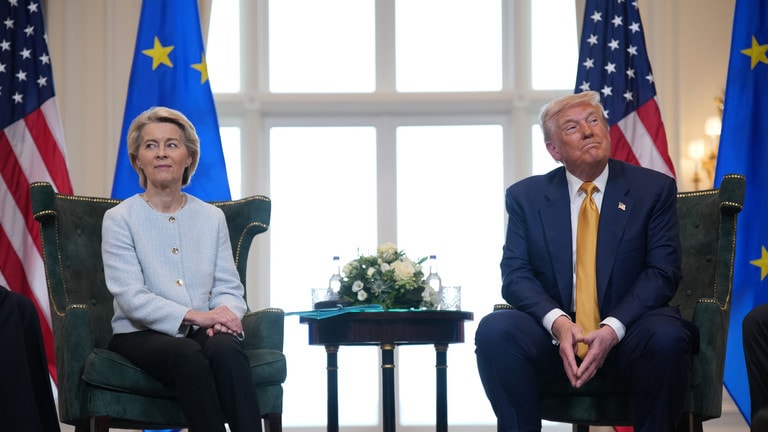Is the US-EU trade war coming to an end? Overview of the 15% tax agreement just signed
The deal, reached after months of tense negotiations, is expected to help stabilize transatlantic trade relations and prevent a looming trade war.

The European Union (EU) has agreed a sweeping trade deal with the United States that will see most of the bloc’s exports to the US face a 15% basic tariff, averting the risk of a transatlantic trade war that both sides warn could be devastating.
The deal was finalized on Sunday (July 27) during a high-level meeting between US President Donald Trump and European Commission President Ursula von der Leyen at Trump's Turnberry golf resort in Scotland. Both leaders hailed the pact as a "powerful" and "stabilizing" breakthrough after months of escalating tensions.
"We have an agreement," Ms von der Leyen told reporters after the 40-minute talks. "It brings stability and predictability."
President Trump called the outcome "the biggest deal of all," adding: "It solves a lot of problems. It's a great decision."
The deal imposes a 15% tariff on EU goods entering the US, including cars, pharmaceuticals and semiconductors – sectors previously threatened with higher tariffs of up to 30% or 50%.
Previously, EU-made cars faced a 25% tariff, while steel and aluminum products faced tariffs of up to 50%. The new deal replaces those tariffs with a uniform base tariff of 15%.
Ms von der Leyen clarified that the 15% level was “all-inclusive”, although Mr Trump suggested pharmaceuticals might have to be considered separately.
“We have to have them made in America,” he said, stressing the need to avoid dependence on foreign suppliers.
As part of the deal, the EU also pledged to buy $750 billion in US energy exports and invest an additional $600 billion in the US economy.
Mr Trump said the EU would buy “hundreds of billions of dollars worth of military equipment”. The US president did not specify a timeframe for these purchases and investments.
The talks have dragged on for four months. The EU has prepared to retaliate with 30% tariffs on $100 billion worth of US goods if the talks fail.
Irish Deputy Prime Minister Simon Harris admitted Dublin "regretted" the 15% tax but said "certainty" was important.
Western financial media said the breakthrough would ease investor concerns, as financial markets brace for turmoil.
“This is actually the greatest trading partnership in the world,” Mr. Trump said before the meeting on July 27. “So we should give it a chance.”


